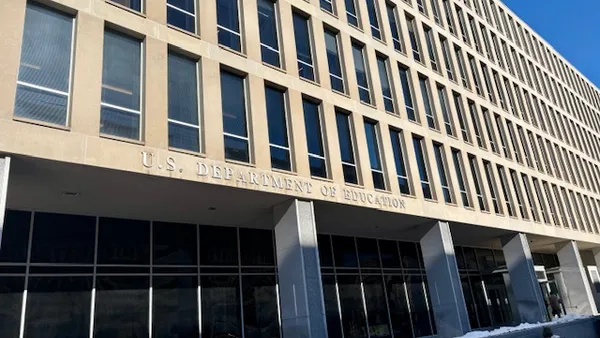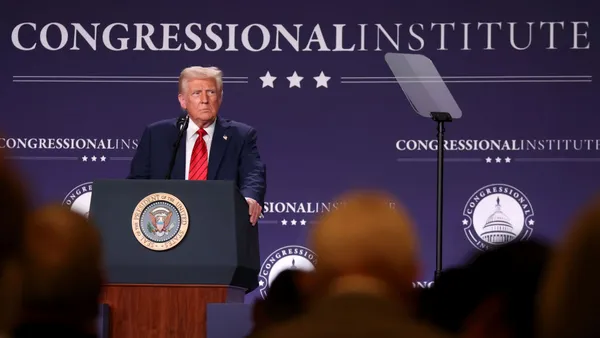Dive Brief:
- Some of higher ed's most influential leaders gathered at the New York Times' Higher Ed Leaders Forum this month and offered what they considered to be some of the most critical issues facing the future of higher education in the nation, reports The New York Times.
- Experts ranged from university presidents and administrators to company executives, economic advisors, and even psychologists, each of which offered different social, economic, and political concerns that ought to be at the top-of-mind for higher ed stakeholders.
- Issues mentioned included reducing college tuition, closing skills gaps to better prepare students for entering the workforce, free speech on campus, balancing scholarships and demographics, and managing students' emotional concerns in a politically sensitive climate.
Dive Insight:
Some of the panel's experts included Gina Raimondo, governor of Rhode Island, who says that high tuition costs need to be addressed as 90% of good jobs require a degree past high school. If students at the high school level are unable to afford college, it sets their futures behind. Sheila Bair, president of Washington College and former chairwoman of the Federal Deposit Insurance Corporation, agreed that college tuition reduction is an important issue to address, especially as costs continue to rise with student loans becoming easier to get.
Both Lawrence H. Summers, the emeritus president of Harvard University, and Jonathan Haidt, social psychologist at New York University’s Stern School of Business spoke about free speech on campus, arguing that colleges must be able to provide a space for students to voice their concerns, while still allowing them to be exposed to new and contrarian ideas in a way that avoids incivility or inappropriate,violent actions like hate crime. And in the long term, Ryan Craig, co-founder and managing director of University Ventures, argued that one of the top concerns of universities should be helping students develop the specific skills they need to be prepared for the workforce and actually be valuable to hiring managers.












